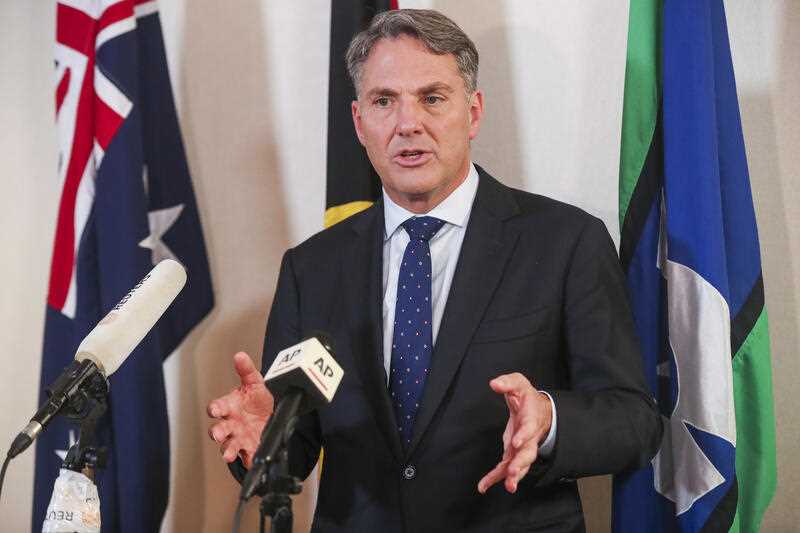A decision on whether Australia would choose US or UK-made nuclear submarines as part of the AUKUS had no “obvious choices”, according to the defence minister.
Richard Marles said the government was looking to make a decision quickly on which nuclear vessels Australia would acquire as part of the trilateral security pact.
An 18-month assessment of the security pact is due by March next year, when it’s expected to be known when the new nuclear submarines would be operational.
Mr Marles said it was critical for decisions surrounding the submarines be made quickly, due to the capability gap.
“There’s a process that’s being worked through with both the United Kingdom and the United States, so they’re not obvious choices, which is probably the most important thing I can say right now,” he told Sky News on Friday.
“We are going to work through that process in an expeditious way, we need to have an answer to this question quickly because it’s the first step … and what submarine we ultimately run with will determine when we can get it.”
It’s expected the first nuclear submarine in Australia won’t be operational until 2040.
While there had been talks from the previous government that US-built nuclear submarines could be bought to fill the capability gap in the interim, those suggestions have been rebuked.
It comes as Prime Minister Anthony Albanese is set to meet with French President Emmanuel Macron, where he will seek to repair Australia’s relationship with the European power following the submarine furore.
Relations between the two countries reached a low when Australia pulled out of a multi-billion dollar submarine deal with France in favour of nuclear vessels as part of AUKUS.
Mr Marles said while there had been a change in tone, the new government was supportive of the AUKUS alliance.
“We’re not about to walk away from any of Australia’s national interests, in fact the opposite, we’re about advancing them and advancing them in a much stronger way,” he said.
“We’re going to do the hard work to build our strategic space and make sure Australia is in a position to be there to advance our national interests with a strong defence force.”
The prime minister said he was looking to have a constructive relationship with France.
However, he didn’t directly answer if Australia would apologise to France over the diplomatic fallout.
“I’ve made it very clear what my position is about the way in which Australia engaged at a leadership level with friends,” he said.
“What I want to do though is to make sure that we can move forward … It should be a relationship where we can rely upon each other … in which we can trust each other and mutually benefit.”
By Andrew Brown in Canberra
Get local, national and world news, plus sport, entertainment, lifestyle, competitions and more delivered straight to your inbox with the Canberra Daily Daily Newsletter. Sign up here.



